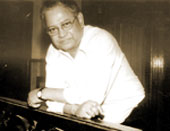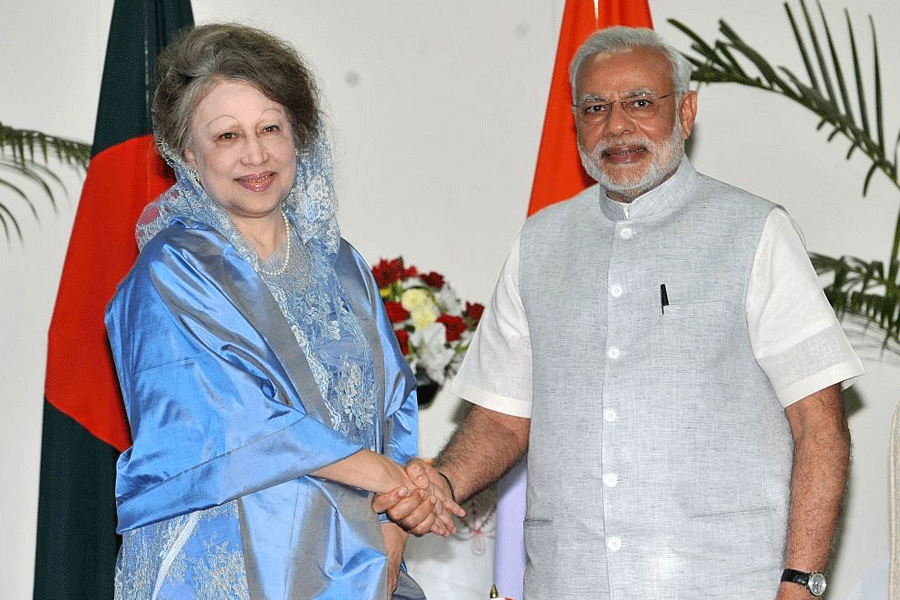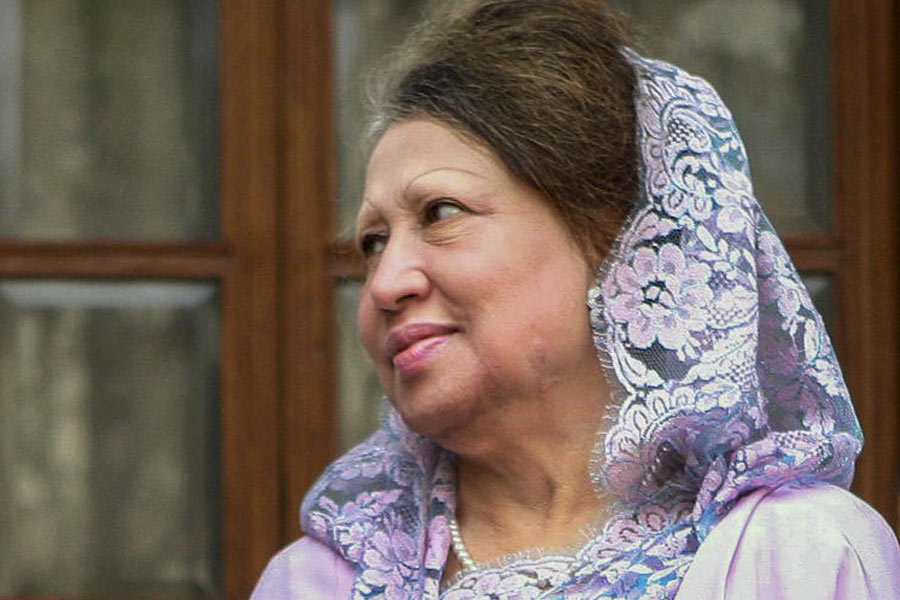 |
Whether you meet him over a cup of coffee or during an evening stroll on a route dotted with potholes, Guwahati-based scriptwriter-playwright Ranjit Sarma is sure to arouse your admiration with his easy, uninterrupted flow of stories.
Even at a party, where he is surrounded by his friends and acquaintances, he is compelled to concede to their demand of narrating one of his recent stories.
?My friends call me storyteller,? he smiles. ?Everyday, one or the other thing inspires me to write, but out of them few take concrete shape to build a strong storyline.?
As a writer who refuses to depict reality in shades of black and white, Sarma bagged the best scriptwriter award for Boibhav at the recently-declared state film award festival.
?Fairy-tales are only for children. Life has more to offer with emotions as diverse as one can possibly imagine,? he says.
?Most of my stories are neither black nor white. Instead of being judgmental, I let the characters take their own stand in a particular situation.?
Boibhav narrates the struggle of the protagonist, Sameeran, a sensitive poet who renounces material happiness in the quest to find his roots. The film went on to win the best film award at the sixth Dhaka International Film Festival, the Jury?s Special Mention at the 47th National Film Festival and the Gollapudi Srinivas Award for the best new director Manju Bora. Along with the director, scriptwriter Sarma also received national recognition for his story.
Another of his much-talked about script was for national award-winning director Bidyut Chakraborty?s film Raag Birag. The film, considered as a milestone in Assamese cinema, brought Chakraborty the Indira Gandhi Award at the National Film Festival in 1997. The film was not only showcased but was also greatly acclaimed at the Cairo Film Festival and Indian Panorama section at Thiruvananthapuram.
?Bidyut gave me full freedom while I was writing the script,? he says. ?I am thankful to Bidyut for not only having faith in me but also taking all risks in making his debut on an unconventional theme.?
In Raag Birag, Sarma discovered the human side of a sanyasi (priest), the protagonist in the film. ?Probably the seed to pen down thoughts was sown in me by my teacher, Gauri Deka of Cotton College, when she presented me with Albert Camus? The Exile and the Kingdom,? he says.
?I was a boy of a mere 18 years and the book, with its existential elements, had a lasting effect on me. I discovered a new vocabulary to see and interpret things around me.?
?In my beginning is my end,? ? those lines from T.S. Eliot define the main influence that guided the journey of playwright Sarma?s life. ?Successfully exploring the interaction between illusion and reality is what I thrive for as a dramatist. Those few words of Eliot had the power to say so much without hammering any point that I, too, try to bring that kind of honesty into my work,? he says.
Another great influence on his life is his father Pabindra Nath Sarma, renowned advocate of Gauhati High Court and a freedom fighter. The dramatist was greatly influenced by his father?s adherence to Gandhian philosophy till his last breath.
After completing his Masters in English Literature from Gauhati University, Sarma worked as a teacher in several Guwahati-based colleges. Following in his father?s footsteps, he also took a degree in law and practised at the Gauhati High Court for 10 years and thereafter joined the United Bank of India as a law officer.
But one passion with which he will never be able to part was his desire to write and construct plots. His very first full-length drama Sanglab, written in 1982, depicts the condition of the masses during Assam agitation. The play, with its existentialist overtones, after achieving success on the proscenium stage, was turned into celluloid as Sankalpa in 1986 by director Hem Bora. The play was also awarded by the Asam Sahitya Sabha in 1985.
Thereafter he went on to write some of the most fascinating and much talked-about dramas and one-act plays for theatre and radio. His play The Enchanted Flora was selected for Akil Bharatiya Kariakam by All India Radio and broadcast all over India. The dramatist has earned the credit of giving the Assamese audience their first fantasy film, 31st June, directed by Bhaskar Bora. The film, with a touch of magic realism, attracted the audience for its very title 31st June, a date which does not exist on the calendar.
Forced to spend most of his time at Guwahati?s regional branch of United Bank of India as a deputy regional manager (law), the artist in the bank official pines to have some moments of solitude. ?I wish I had plenty of time to kill,? he says.
?Solitude has become a luxury these days. Solitary moments are precious chances where a writer encounters his characters and often I wish to lock myself up alone, where nobody except me and my characters can have long duration of companionship.? His book, Ranjit Sarmar Nirbasito Sankalan, contains some selected stage and radio plays and the entire script of the film Raag Birag.
The dramatist, when asked about his best creation till date, sighs. ?My best is yet to come,? he says.
?I am never happy with my own creations, in spite of awards and appreciation, I often discover flaws, either in portraying my characters or in the storyline. The sense of happiness and ecstasy with my own work remains elusive.?
Sarma is always conscious of not intruding into the very essence of a character. ?A good playwright should let his characters speak for themselves,? he opines. The dramatist firmly believes that the story should also speak on its own to attain a high degree of spontaneity and a writer?s interference should be as minimal as possible.
?A play or film should be like a river,? he says. ?Like life, the beauty of a story lies in several twists and turns and that is where the author should be neutral and let his character take a definite shape on their own.?
At present, the scriptwriter is concentrating on his new screenplay for a yet-to-be-titled film. ?I believe in maintaining secrecy about my work. Let everything gets ready and hopefully the film will be launched within this year. Then all queries will be automatically quelled,? he smiles.
?Any artist is known for his work, but awards surely inspire one to polish his work further,? he says. ?More than I, my family members, especially my wife and daughter Brinda, enjoy these precious moments.?










